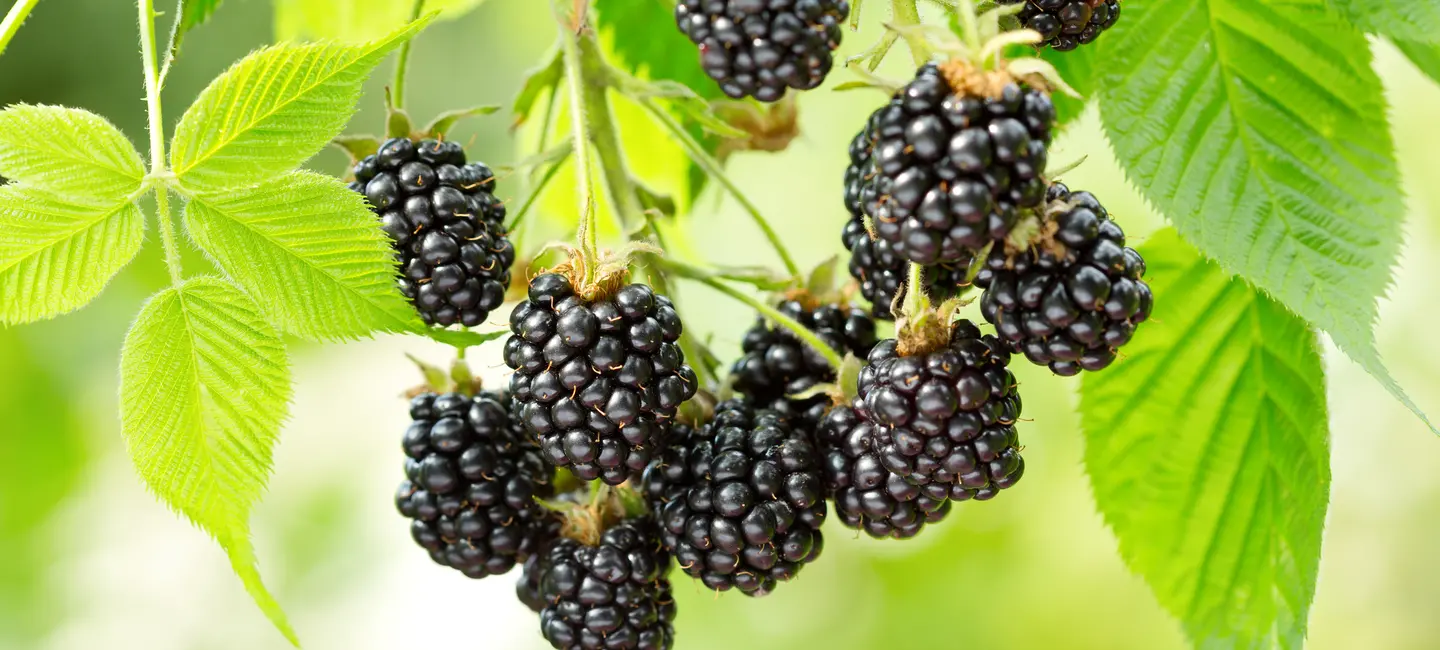
Blackberry is a plant. The leaf, root, and fruit (berry) are used to make medicine.
Blackberry is used for diarrhea, fluid retention, diabetes, gout, pain and swelling (inflammation), throat irritation, and other conditions, but there is no good scientific evidence to support these uses.
Is It Effective?
NatMed Pro rates effectiveness based on scientific evidence according to the following scale: Effective, Likely Effective, Possibly Effective, Possibly Ineffective, Likely Ineffective, Ineffective, and Insufficient Evidence to Rate.
- Fluid retention.
- Diabetes.
- Diarrhea.
- Gout.
- Pain and swelling (inflammation).
- Cancer.
- Heart disease.
- Other conditions.
More evidence is needed to rate the effectiveness of blackberry for these uses.
Is it Safe?
Blackberry contains chemicals that might have antioxidant effects. It also contains chemicals that might protect against cancer.
When taken by mouth: Blackberry fruit is LIKELY SAFE in the amounts commonly found in food. There isn't enough reliable information to know if blackberry is safe in the larger amounts used as medicine or what the side effects might be.
Special Precautions & Warnings:
Pregnancy and breast-feeding: There isn't enough reliable information to know if blackberry is safe to use when pregnant or breast-feeding. Stay on the safe side and stick to food amounts.
It is not known if Blackberry interacts with any medicines. Before taking Blackberry, talk with your healthcare professional if you take any medications.
There are no known interactions with herbs and supplements.
There are no known interactions with foods.
The appropriate dose of blackberry for use as treatment depends on several factors such as the user's age, health, and several other conditions. At this time there is not enough scientific information to determine an appropriate range of doses for blackberry. Keep in mind that natural products are not always necessarily safe and dosages can be important. Be sure to follow relevant directions on product labels and consult your pharmacist or physician or other healthcare professional before using.
Black Berry, Bramble, Dewberry, Feuilles de Mûrier, Feuilles de Ronce, Goutberry, Mûre, Mûre Sauvage, Mûrier, Ronce du Canada, Ronce Commune, Ronce Laciniée, Rubi Fruticosi Folium, Rubi Fruticosi Radix, Rubus affinis, Rubus canadensis, Rubus fruticosus, Rubus laciniatus, Rubus millspaughii, Rubus plicatus, Thimbleberry, Zarzamora.
Information on this website is for informational use only and is not intended to replace professional medical advice, diagnosis, or treatment. While evidence-based, it is not guaranteed to be error-free and is not intended to meet any particular user’s needs or requirements or to cover all possible uses, safety concerns, interactions, outcomes, or adverse effects. Always check with your doctor or other medical professional before making healthcare decisions (including taking any medication) and do not delay or disregard seeking medical advice or treatment based on any information displayed on this website.
© TRC Healthcare 2024. All rights reserved. Use and/or distribution is permitted only pursuant to a valid license or other permission from TRC Healthcare.
